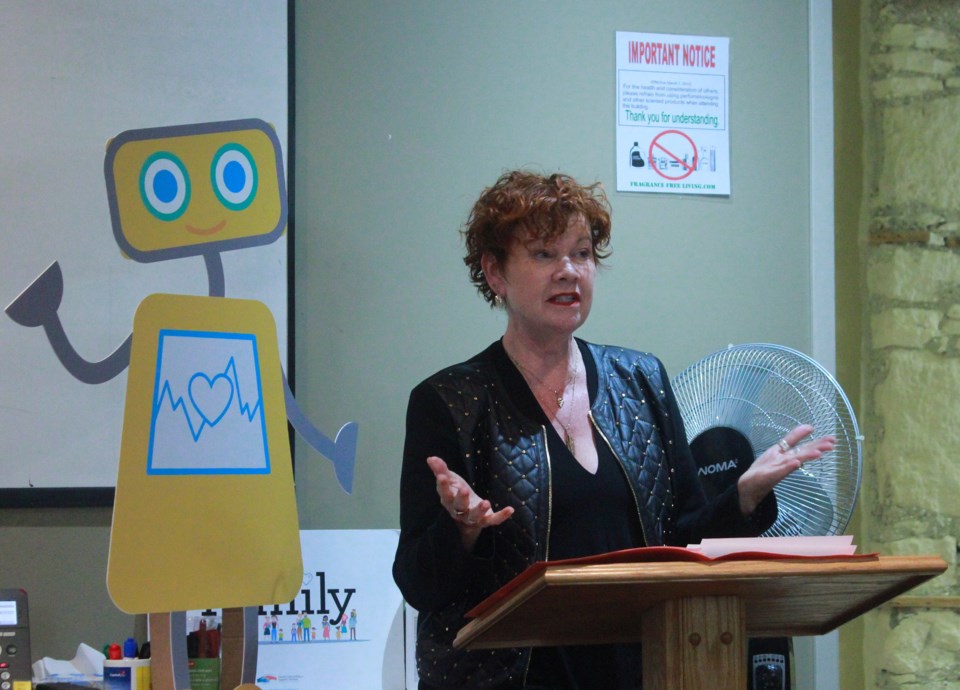Those struggling with their mental health can now access therapy through the comfort of their phone.
On Friday afternoon, Family Counselling and Support Services of Guelph-Wellington (FCSSGW) launched Woebot, an app that serves as a digital health solution to help people access mental health services anytime and anywhere.
While the app is available internationally, the local version has the advantage to direct users to local support services if needed and is fully funded by the Waterloo Wellington Local Health Integration Network (LHIN).
“The more you interact with it, the more it gets to know you and it interacts differently as it gets to know you better,” said Rhona Wideman, the director of the Waterloo Wellington LHIN.
With triggers built into it, the app is designed to respond to a crisis situation by admitting that it is just a robot and asking the user if they have a human available to speak to.
“If the crisis continues to escalate, or the conversation continues to escalate, it will suggest that you use crisis support and it will suggest that you call through 24/7 crisis support line and it will suggest you call 911,” said Wideman.
The app was founded by Alison Darcy — a clinical research psychologist at Stanford School of Medicine who developed health technology for 15 years — uses a friendly approach to send warm messages through words, emojis and GIFs, aiming to make the user feel comfortable and less intimidating.
The chatbox used in the app has over 150 evidence-based lessons, exercises and stories from experts in clinical psychology, and uses that knowledge to ask user questions about how they’re feeling and what is going on in their life
Woebot is not a crisis service and no human being monitors live conversations, it uses data shared by the user to understand them better to function as a cognitive behavioural therapy coach.
“We know that we have a mental health crisis in this community. We’ve worked with all of our partners across the entire county and throughout the City of Guelph to combat this,” said the executive director of the FCSSGW, Joanne Young Evans.
She said the organization is in dire need of resources and tools that will help meet the demand for mental health services.
“I know that whether its the province, whether its local politicians as our main community partners as funders, we all have a stake in this and we all ensure that we are working together as best as we can. We’re not done yet,” said Evans.
Helen Fishburn, the executive director of the Canadian Mental Health Association Waterloo Wellington said that by the time individuals come to the CMHA, they need a full team, which can be an intrusive way of therapy.
Fishburn said the CMHA receives 5,000 unique callers a month.
“We want people to get the care they need as soon as possible and as early as possible,” said Fishburn.
“We also know that stigma is still in play. So there’s probably triple the amount that isn’t on our radar and Woebot is a wonderful opportunity to have stigma-free care and connect with care 24/7 when they need it.”
MP Lloyd Longfield said the federal government is currently looking into Health Canada developing a standard for digital mental health by measuring the results produced by digital programs.
